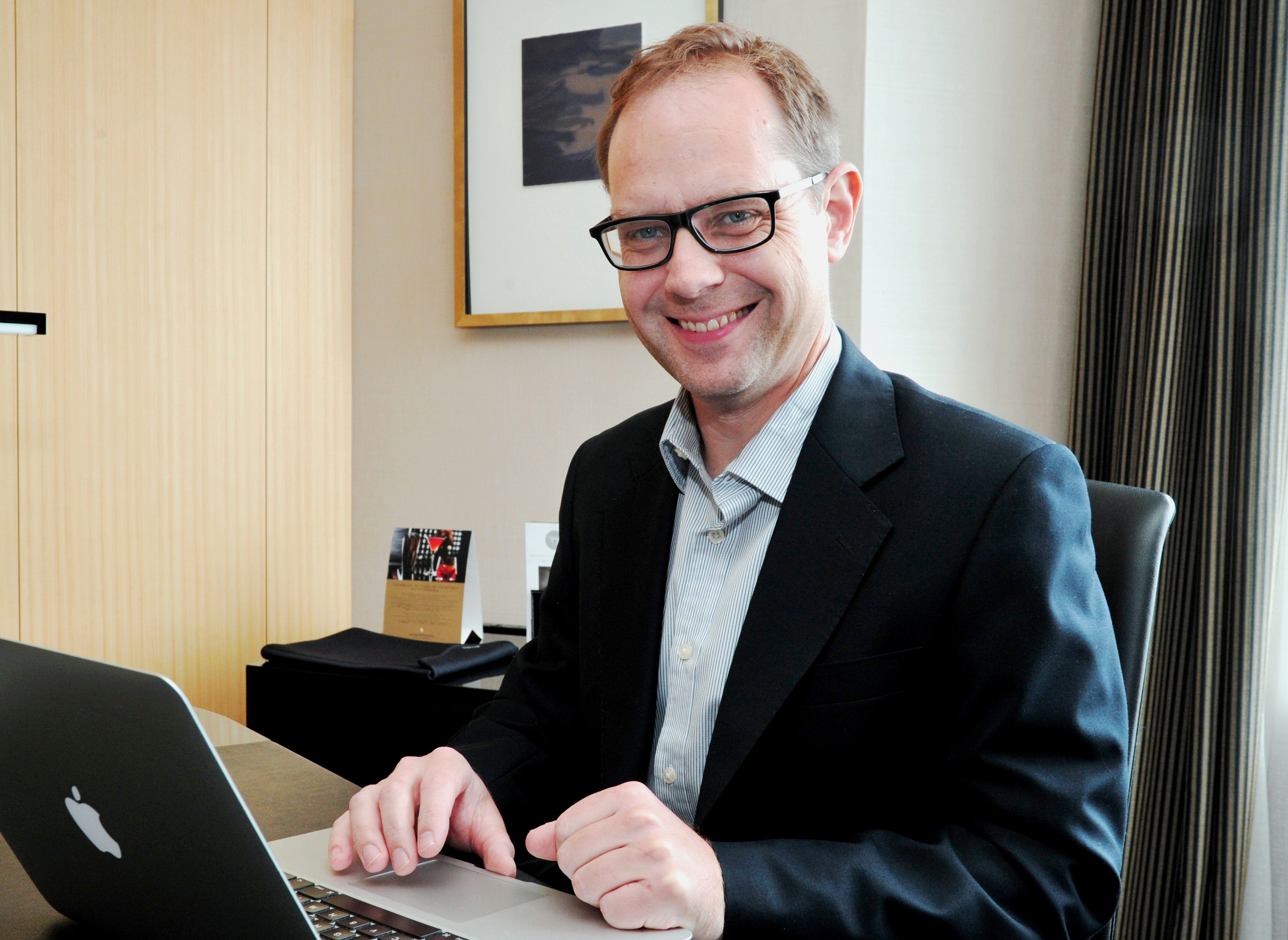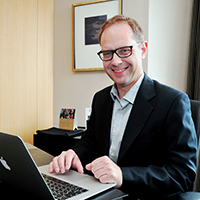Although IE Business School in Madrid, Spain, is a relatively new institute born in the 1970s, it has already earned international recognition as one of the top business schools in the world from such respected media as the Financial Times, and The Association of MBAs.
The Japan Times recently had the opportunity to meet with Joel McConnell, director of International Development, Asia Pacific Region, as well as Rolf Strom-Olsen, an International MBA faculty member from IE Business School, to learn the unique features of this academic institution.
Spanish entrepreneurs and a marquess originally founded IE Business School in 1973 as the Instituto de Empresa (the origin of the “IE”). Programs offered in those days were MBA and Executive MBA courses that were related to business management.
Over the years, the school sought growth and that meant going international to compete. “Because of the infrastructure we had and as all the teaching was done in Spanish, it was quite natural for us to first extend into Latin America,” explained McConnell.
Learning how business works in Spain and Latin America, and through its contacts with its international students, the school was able to expand globally, and began teaching in English about 25 years ago.
Today, IE Business School is part of the seven schools at IE University. 31 different master’s and executive education programs are taught to about 6,500 students from 90 different countries by over 500 international faculty members.
Courses include undergraduate, master, doctoral and executive education. It operates 28 IE country offices around the world to maintain institutional and alumni relations, as well as handle student recruitment. Its 50,000-plus alumni hold management positions in more than 100 countries.
McConnell described the school as being dynamic, fast-paced, entrepreneurship-focused, and respectful of social relations and diversity.
He also said: “If the institutional and alumni relationships are maintained well, the best candidates choose your institution first. This is because people want to study at top schools worldwide. IE is recognized as a leader, and they can foresee a promising future career path after graduation.’’
In Asia-Pacific, IE also maintains partnerships with top schools, and offers dual degree courses with such schools as Shanghai Jiao Tong University, as well as KAIST Business School in South Korea.
Additionally, this year, IE was approved as a member of the Association of the Asia-Pacific Business Schools, and launched a joint MBA program with Singapore Management University.
“One of my personal objectives over the past two years has been to expand the presence of IE in western Japan, explained McConnell.
‘’Therefore, I’ve been working with regional universities. Most recently, we’ve signed new agreements with Doshisha in Kyoto and Ritsumeikan’s APU in Beppu to facilitate the exchange of students,” he said.
In terms of corporations, IE maintains strong ties with such international players as Google, Amazon, Johnson & Johnson, Mitsui and Nissan Motor.
As for staff, many are IE graduates, resulting in uncommon commitment to helping the best candidates who apply to IE. Having alumni, like McConnell, constantly asking themselves: “Would I like to have this person as a fellow alumni?” means that top applicants can expect full support as they work toward obtaining a place in one of IE’ s programs.
As to the much debated, but undoubtedly impactful, online education, IE offers two MOOCs (Massive Open Online Courses) through Coursera, a for-profit organization that provides universal access to the world’s best education for free, by partnering with top universities and organizations.
Strom-Olsen, a professor at IE, gives lectures on “Critical Perspectives on Management,” while another course on economics is given by Gayle Allard, also an IE faculty member. On campus in Madrid, Strom-Olsen teaches an incredibly diverse group of 50 students that come from 40 countries.
“IE has no center, and there is no such thing as a foreign student at our school. Everybody is a foreigner. For example, Spanish students make up the smallest number of the students in my class. Others are from the U.S., India, Japan, China, South Korea, Europe and Canada,” he said.
Those students have a mixture of career ambitions, with some seeking to go to the private sector from the public sector, or vice versa.
His course is idiosyncratic, with the main pillar being humanity. It is a compulsory course, and he says he takes up “traditional orthodoxies, and subjects them to critical judgment.”
“The students have to evaluate the orthodox management context and deconstruct it to reach a long-term strategic management goal,” he explained.
Through such a process, the students realize the function of a corporation, the shareholders, the employees and so on. They also scrutinize the exceptionally high compensation paid to corporate managers in the West and study the competing models of capitalism.
“In the West, growth has always been a crucial factor. But that growth model is very Anglo-American. When you look at Japan’s economy, it hasn’t grown much over the last 20 years. It’s demographically shrinking. But in reality, you don’t find unhappy people on the streets. Then you ask, is it really necessary to grow?” he asked.
Such continual questioning, reflecting, and re-questioning is the humanities approach encouraged by Strom-Olsen.
“This is because management is social science. It discovers the rules to best practice business and there is a science behind it,” he said.
In terms of the recent trend in MBAs, Strom-Olsen says there has been a shift from a focus on leadership to a specialization that adds a skill set to leadership experience.
But as the market has moved far too much toward the specialized skill set, “IE is bringing back the general management skill set,” he said.
He said that IE students are there to explore their own capabilities, so they can carve out their own career goals.
“The required general skill set is entrepreneurial thinking. You think in a general, encompassing way, and solve problems in a wide-ranging way.”


 Click to enlarge
Click to enlarge
